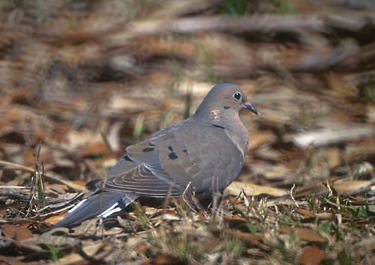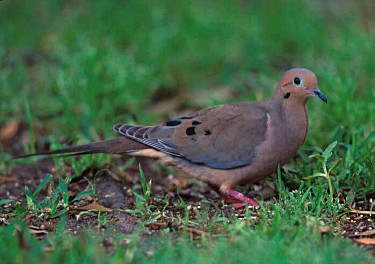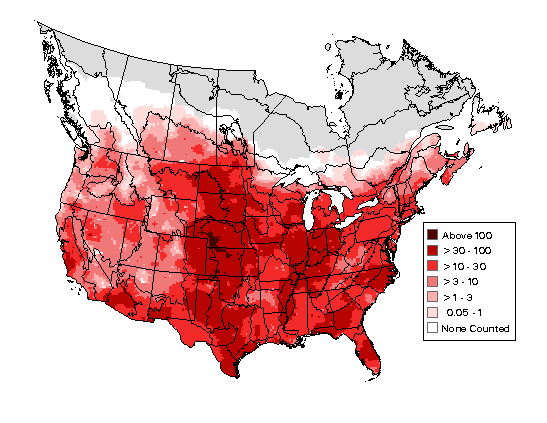Mourning Dove

Mourning Dove Information
Length: 12"
Habitat: Open woodlands, forest edges, forest clearings, farmland, orchards, fields, roadsides, parks, residential areas.
Prefers habitat with some open areas for foraging and some trees or shrubs for nesting and roosting.
Diet: Weed seeds, grass seeds, pine seeds, waste grains. Occasionally, snails and insects.
Preferred Bird Feeder Food
- Mourning doves favor white millet (not red millet) and cracked corn. They will also eat many other foods, including hulled sunflower seeds, peanut hearts, and oats.
- This food should be scattered on the ground or placed on a platform feeder.
- If you have many House Sparrows or Cowbirds, it might be better to use other options, as those two species are attracted by white millet.
Additional Information
Mourning DoveFacts about the habitat, diet, feeding behavior, nesting, and migration of this bird. Includes photos, range map and sounds. (From Audubon Field Guide)
Mourning Dove

© ArtToday
Mourning Dove
Identification Tips
- Sexes similar
- Medium-sized, somewhat slender dove with very thin neck
- Black bill
- Pale buff-brown head, neck, breast, and belly
- Purple and green iridescence on neck
- Small black mark on lower neck
- Medium brown back and upperwings, with large black spots on coverts
- Long tail is pointed at tip
- Dark brown tail with white tips to outer four tail feathers
- Dark brown mottled head neck and breast
- Scaly neck and upperwings with numerous black spots on coverts and scapulars
- Pale belly
- Medium length tail is pointed at tip
(Credit: U. S. Geological Survey)
Breeding Bird Survey Map,
2011-2015

(Image credit: USGS)
Range in New England
The Mourning Dove is found year-round in the New England region.
Mourning Dove
Range Maps from Cornell
Mourning Dove breeding, year-round, and nonbreeding range.
Includes separate map of sightings.
Mourning Dove
Christmas Bird Count Map
Historical CBC Map from USGS